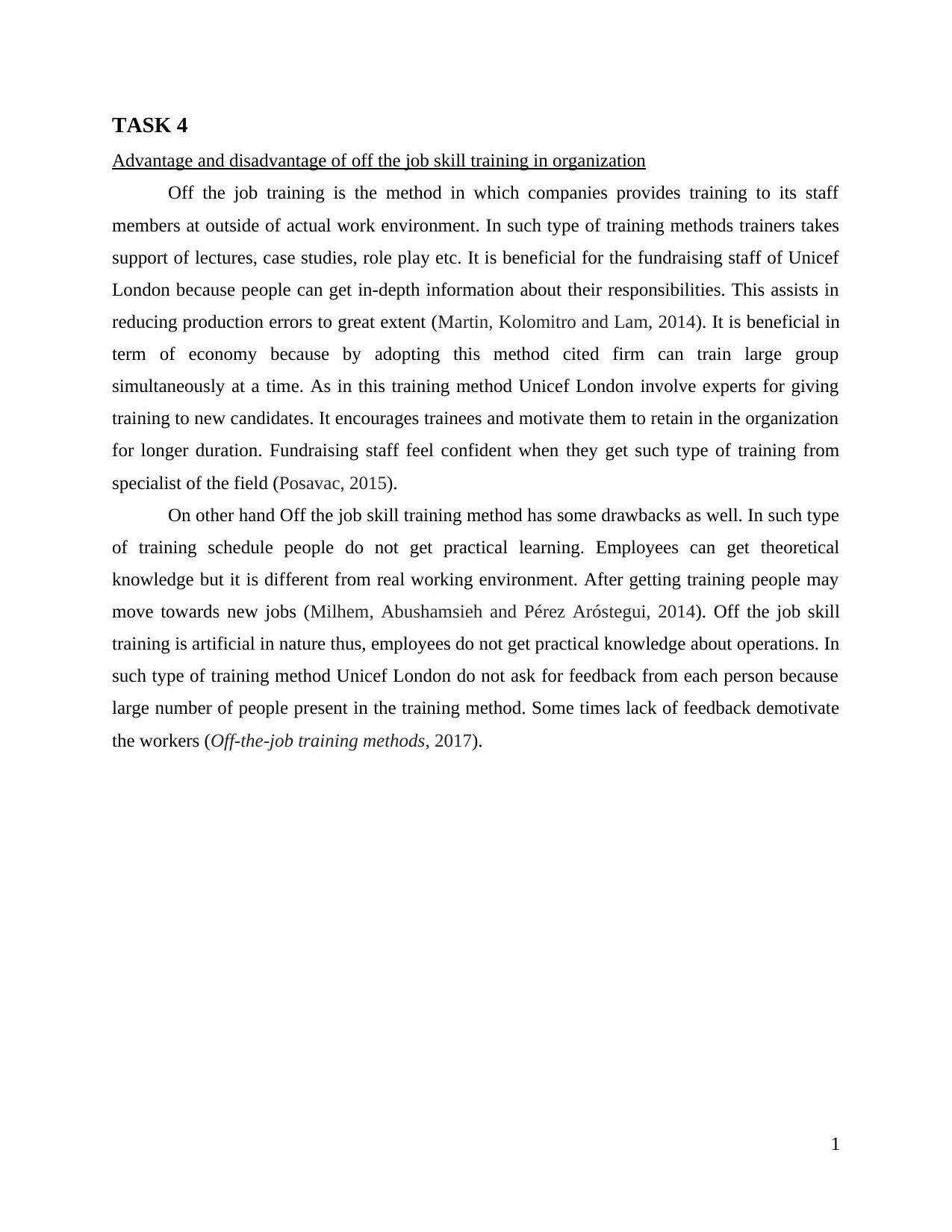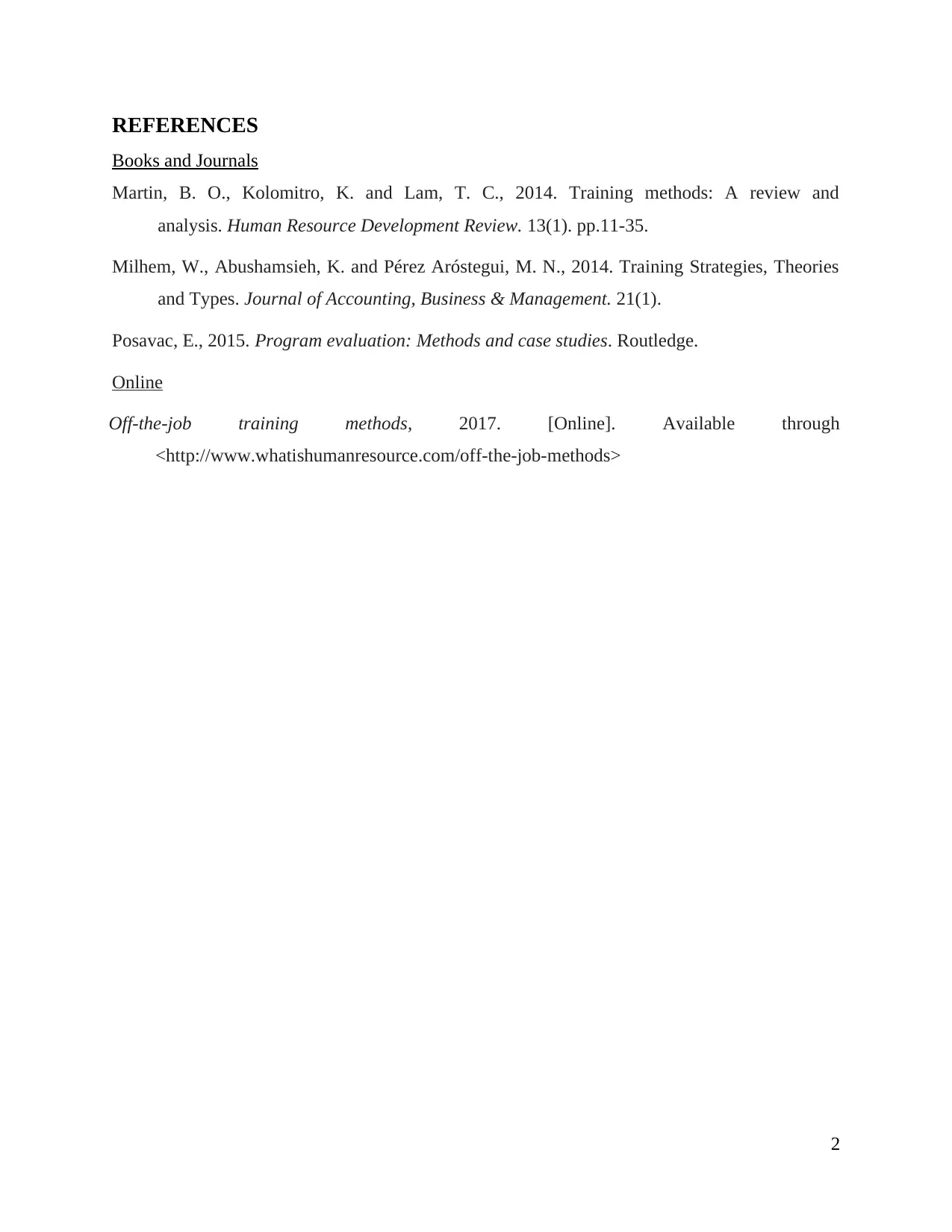Advantages and Disadvantages of Off-the-Job Training at UNICEF
VerifiedAdded on 2020/06/06
|4
|428
|54
Report
AI Summary
This report analyzes the advantages and disadvantages of off-the-job training methods, specifically within the context of UNICEF London's fundraising staff. The report highlights the benefits of off-the-job training, such as providing in-depth knowledge, reducing errors, and training large groups efficiently. It also notes that this method can boost employee confidence. However, the report also acknowledges the drawbacks, including the lack of practical learning in a real working environment, potential for employees to seek new jobs after training, and the artificial nature of the training. It also discusses the lack of individual feedback, which may demotivate workers. The report references several sources to support its findings, including books and journals, and concludes with a discussion of the overall impact of off-the-job training on employee skill development and organizational performance.
1 out of 4











![[object Object]](/_next/static/media/star-bottom.7253800d.svg)